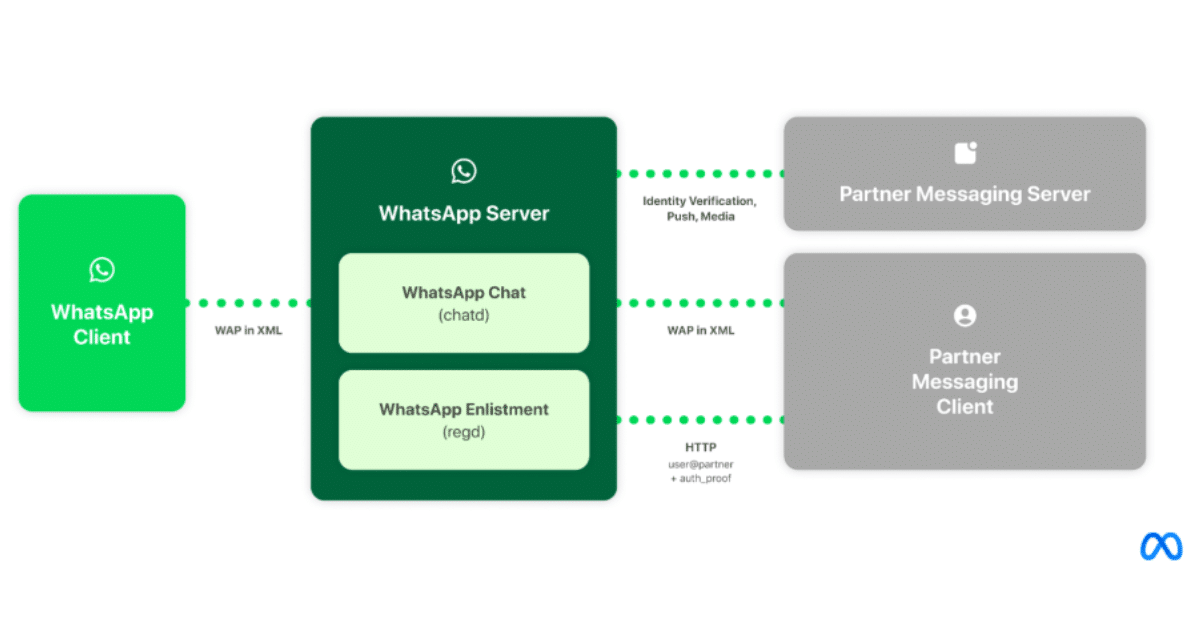With the European Union’s Digital Markets Act (DMA) coming into effect, tech giants like Meta are redefining their strategies to comply with new regulations while maintaining user privacy and security. Meta’s recent announcements regarding interoperability for WhatsApp and Messenger users within the EU have sparked considerable interest and discussion.

How Meta’s interoperability plans for WhatsApp and Messenger prioritize user privacy
Meta’s commitment to enabling interoperability between its messaging platforms and third-party services aligns with the DMA’s requirements. Under these regulations, gatekeeper companies like Meta are mandated to open up their platforms to foster competition and innovation in the digital market. From Meta’s blog post:
On March 7th, a new EU law, the Digital Markets Act (DMA), comes into force. One of its requirements is that designated messaging services must let third-party messaging services become interoperable, provided the third-party meets a series of eligibility, including technical and security requirements.
This allows users of third-party providers who choose to enable interoperability (interop) to send and receive messages with opted-in users of either Messenger or WhatsApp – both designated by the European Commission (EC) as being required to independently provide interoperability to third-party messaging services.

Meta’s decision to utilize the Signal protocol for end-to-end encryption (E2EE) highlights its dedication to maintaining user privacy. By adopting this widely recognized encryption standard, Meta aims to safeguard messages transmitted between its platforms and third-party services.
Third-party messaging providers seeking to integrate with WhatsApp and Messenger must adhere to Meta’s stringent security standards. While Meta encourages the use of the Signal protocol, it also allows for alternative encryption methods that demonstrate equivalent security guarantees. However, third-party providers must undergo rigorous cryptographic processes to ensure message content security.
Despite efforts to uphold E2EE during message transmission, Meta acknowledges the limitations of ensuring end-to-end security once messages reach third-party platforms. Users are cautioned about potential privacy risks associated with sharing messages beyond Meta’s controlled environment.
While we have built a secure solution for interop that uses the Signal Protocol encryption to protect messages in transit, without ownership of both clients (endpoints) we cannot guarantee what a third-party provider does with sent or received messages, and we therefore cannot make the same promise.
While Meta’s interoperability initiative initially targets users within the EU, there’s anticipation for broader implementation in the future. However, Meta has yet to outline plans for extending interoperability beyond the EU region, citing potential challenges related to competition and security.